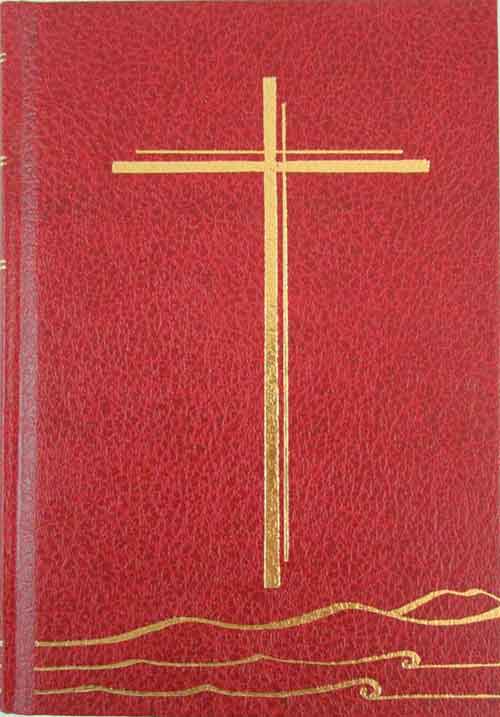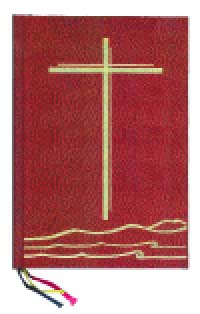
Yesterday I was a guest at the meeting of the Common Life Liturgical Commission. This is the highest liturgical body in our church with representatives from each tikanga (Maori, Pakeha, Polynesia).
I was invited by the chair, Bishop Kito Pikaahu, and they welcomed me very graciously. The commission worked systematically through issues – the unanimously-passed motion from the Christchurch synod was a very helpful framework for our discussions.
Regulars here will be aware of my concern about the plan to print a revised New Zealand Prayer Book without following the appropriate procedures. The breaking news is: that is not going ahead. I have been working on this from when I first became aware of and advocated against the vague “Motion 5” at General Synod Te Hīnota Whānui in 2010.
The positive is that if there is to be a revised Prayer Book something much better could be the result.
Clearly far more thought and work needs to be done on the issue Christchurch raises about what in liturgy is required, allowed, or forbidden.
We have “formularies”, “authorised services”, “received” services, and “resources”. We are not even sure, for example, when we have a formulary, whether that is all that is allowed to be used, or whether something else is also allowed. If that is the uncertainty around formularies, no wonder there is confusion when it gets to “authorised services”.
There is the Prayer Book, and then there are the first, second, and third schedules (to Title G Canon VI). Even what A New Zealand Prayer Book He Karakia Mihinare o Aotearoa refers to is not as straightforward as one might think.
For those who have not been following the issues (and the links in this post will get you up to speed on this) I will try and express a couple of issues as simply as possible (understanding that much more could be said and being brief is in danger of oversimplifying):
1) In the Eucharist, the great tradition is that the prayer at the core of the Ministry of the Word, like the prayer at the core of the Ministry of the Sacrament, is addressed to God (the First Person of the Trinity), through Christ, in the power of the Holy Spirit. In the Ministry of the Sacrament the prayer with that dynamic is called the Great Thanksgiving, the Eucharistic Prayer, the Consecration. In the Ministry of the Word the prayer with that dynamic is called the collect, the opening prayer.
The revision was going to assign a single prayer to each service. The prayer was possibly lovely in itself, possibly appropriate in other contexts, but often addressed to Jesus or the Holy Spirit – and hence abandoning our inherited dynamic and weakening our already-weak Trinitarian spirituality, theology, and liturgical heritage.
2) Our church has a formal process for altering doctrine and liturgical practice. To alter a formulary, such as our Prayer Book content, requires a statute to be passed at General Synod/te Hīnota Whānui (GSTHW), then passing at diocesan synods and hui amorangi, then passing at a newly elected GSTHW and then lying on the table for a year for anyone to challenge. Only after that rigorous process is the new formulary in place. None of that happened for this revision.
The revised Prayer Book was at the point of being run off. About two hundred pages were revised.
There were times when I became a bit tired and disheartened by my efforts and being such a lone voice in this. [Sadly we now appear a one-issue church. Had the word “homosexuality” appeared somewhere, there would have been a rallying of energy from all sides.] Then the Christchurch diocesan synod came in behind this unanimously. And also the Dunedin diocesan synod. Members from the influential Tikanga Pakeha Liturgical Working Group voiced concern. Now the Common Life Liturgical Commission also brings its significant voice and process to this and so I am delighted that – the presses have been stopped.




Congratulations, Bosco, on the fact that you were actually invited to the Meeting which discussed the problems expected with the publication of a new Prayer Book for ACANZP. Your diligence and perseverance have at last been rewarded- with the withdrawal of the offending publication. This will probably mean more work for you – on being involved in a more suitable provision of a set of Collects for use at the Eucharist. But, hey, you have the resources and the will. I pray that the General Synod will, in future, be more watchful in matters of Liturgical Reform.
Thanks, Fr Ron. I have begun, here, week by week, working on one collect, and I hope, bit by bit, that there will be feedback about that. I pray that the church moves more deeply into finding our unity and meaning in God alone – expressed and graced through our charism of common prayer. Blessings.
Did you manage to squeeze a mention of Creative Commons Licensing in? It looks as though you may have had more than enough to talk about without finding time for that.
No, Mary. There are many other things we could have discussed, but we stayed in the framework of the Christchurch motion, and I think it was best that we did. It is good, I believe, if you and others bring energy to other dimensions, like your (I think important) highlighting Creative Commons Licensing as a way forward. Blessings.
Good on you Bosco – I don’t feel as you do about it but I sure do admire your determination!
Thanks, Sande. Blessings.
Well done Bosco. And it was lovely meeting you briefly over lunch at St John’s College.
I do have a comment of relevance to this topic, but as it is also relevant to the collect for this Sunday, I have put it there.
I, too, was delighted to be with you, Edward. It was certainly, for me, a whirlwind day. Blessings.
Excellent news.
Thanks, Dorothy. Blessings.